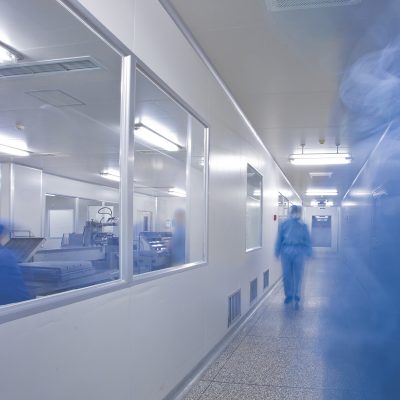First civil society, and now a generic drug company, have asked the Russian government to issue a compulsory license on remdesivir, a drug first developed (unsuccessfully) to treat Ebola and now being repurposed to treat COVID-19.
Compulsory licensing is when a government allows someone else to produce a patented product without the consent of the patent owner. It usually follows unsuccessful requests or negotiations for a voluntary license, as is the case in this example.
The patent holder, Gilead Sciences, charges $2,340 (USD) for a 5 day course. Generic versions range from $960 to $229 for the same period, while still maintaining a profit. The University of Liverpool estimates that a daily dose of remdesivir could be produced, also at a profit, for as little as $0.93 a day.
Pharmasyntez, a Russian drug maker, has developed its own generic version which is ready to be launched, pending the results of additional clinical trials which are underway. The drug is already approved for emergency use in the USA, although trials have so far show different outcomes and so more data is required.
Two versions have been registered in Russia, with the trade names Vekluri (Gilead Sciences’ version) and Remdeform (Pharmasyntez’s generic version). However, currently, only Gilead has the ‘right’ to supply to Russian unless the government uses its legitimate right to issue a compulsory license.

Remdesivir has ’emergency use’ status in the US, which has bought up the majority of Gilead’s stocks. Generic versions and national manufacturing are essential in order to benefit patients elsewhere in the world if the drug is proven to be effective.
Neither version of remdesivir is available in Russia as of yet. Wealthy countries, namely the USA, have been buying up the majority of remdesivir stocks, securing the lion’s share at Gilead’s inflated prices. The fact that this can happen even during a pandemic highlights the deep-rooted inequity in access to essential medicines.
Gilead has issued voluntary licenses to producers in 127 countries, which makes the drug more affordable, although Gilead still sets the price. Gilead has chosen not to make this option available to Russia.
As Reuter’s reports: “Pharmasyntez wrote to the U.S. firm in July requesting its consent in the form of a voluntary licence, but did not hear back, Vikram Punia, Pharmasyntez’s director said. The Siberian-based drugmaker is now asking the Kremlin to activate a compulsory licensing process on the basis of national security, granting it the right to produce the generic – labelled Remdeform – without Gilead’s consent. ‘Many people’s lives could be saved using this drug. The longer this drug is inaccessible, the more people we will lose,’ Punia said.”
As Sergey Golovin, Make Medicines Affordable coordinator for Eastern Europe and Central Asia (EECA) at ITPCru, describes: “In any case, it is not sustainable to rely on voluntary measures. Typically these are only issued when companies are put under pressure, and on the whole they are offered to low-income countries, leaving a significant treatment gap in middle-income countries.”
“That’s why back in August 2020 ITPCru detailed and provided an analysis of the patent status of remedesvir in Russia, as well as the global pricing and licensing policy, to a working group tasked with ‘improving legislation in the sphere of Medicines Provision and the circulation of medicines’, and asked the government to issue a compulsory license if remdesivir is proven safe and effective for treating COVID-19,” Golovin explains.
If a compulsory license is issued, it would be the first time the Russian government has used this legitimate tool. Make Medicines Affordable advises all countries to use all the tools, or flexibilities, available to them under the TRIPS Agreement, the World Trade Organization agreement which introduced patents on medicines.
“The patent system needs changing, returning essential medicines to a public health good, instead of the commodity that they’ve become. Until that happens, countries have to exercise the rights available to them on a national level,” says Golovin.




